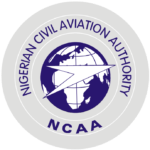
Airline operators have stressed the need for Nigerian banks and other financial institutions to adopt long-term funding model for the sector in order to ensure the survival of indigenous carriers.
Some airline operators made the call in an interview with THISDAY, in reaction to a recent statement by the Managing Director and Chief Executive Officer of Asset Management Corporation of Nigeria (AMCON), Mr. Ahmed Kuru, who had attributed the frequent failure of Nigerian airlines and unstable domestic air travel market to inimical policies and self-destructive actions of the airlines and called for a review of the industry for improved performance.
THISDAY findings revealed that Nigerian airlines are always struggling to repay mostly, the short-term credit facilities extended to them by banks.
In 2018, the Minister of Aviation, Senator Hadi Sirika, had lamented that airlines were hugely indebted to banks to the tune of over N300 billion.
Owing to this, airline operators that spoke to THISDAY, said for indigenous carriers to stop defaulting on their loans, banks should device a lending regime that would be long-term, single digit interest rate and also recognise the low margin of profit of commercial airliners.
The President and CEO of Top Brass Aviation Limited, Captain Roland Iyayi, said banks could not offer short-term loans to airlines, to fund long-term facilities.
“To buy used aircraft, you need to obtain seven-year loan, which you will repay with low interest. To buy a new aircraft, banks should offer 12-year loan to airlines. Basically, banks should not expect airlines to repay short term funding for long-term loans for the acquisition of assets.
“Nigerian commercial banks do not have officials who are specialists in aviation. They only have transport department where they analyse cash flow. Overseas, banks that engage in aircraft funding have aviation desk. They make sure that the risk is well managed. In Japan, the Japanese government has sovereign wealth guarantee for their airlines in aircraft acquisition in case of default. If there is default the repayment could be delayed for additional two years,” he said.
Iyayi said banks should adopt the right structure for lending to airlines, stressing that three-year old loan cannot serve the aviation industry well.
He pointed out that with attendant high interest rate, short tenured loan would make repayment difficult.
Similarly, the President, Chartered Institute of Bankers of Nigeria, Dr. Uche Olowu, said airlines required long-term funding because of their small margin and the capital intensive nature of the sector.
“You cannot run an airline with short-term fund. Aviation industry is very critical. So, they need long-term funding to maintain their fleets and meet other operational cost,” he added.
A former Managing Director of Capital Airlines and an industry consultant, Mr. Amos Akpan, who spoke in the same vein, said for effective loan repayment, there should be a separate lending criteria for the industry.
“It is suicidal for any airline management to collect loan from a bank for 18 months to 36 months tenor, at the interest rate of 20 to 32 per cent. The reason is because airline operations do not make such profit margins in their finances. What remains after payments for the fixed cost is not up to 18 per cent from their income,” Akpan said.
According to him, banks are beguiled by high volume sales of airlines, noting that airlines are also known for high cost of operation, which takes most of the monies earned away.
“High volume sales from counters and sale points do not translate to profit or positive liquidity. Planned and unplanned cost in airline can be high especially maintenance. It can ‘swallow’ millions of naira unexpectedly.
“When bank managers see these high volume cash coming in daily from sales, they used it to write a good report for credit facility. One maintenance problem may swallow most of that money. We need aviation desk experts in our banks. People that know that giving loan to buy aircraft do not mean that aircraft will work 12 months through the year.
“There is calendar for maintenance, which must happen once in a year. Our NCAA (Nigerian Civil Aviation Authority) insists on calendar not hours of utilisation. It may work 10 or 11 months in a year,” he explained.
Akpan noted that airline owners and management are usually blamed over failure to repay their loans.
“If an operator takes an 18 months loan because he needs it, he will surely default. Do not forget that forex is key in airline financial needs. We need aviation experts on the desks of these lenders.
“Corporate culture can be checked if the financial institutions lending the money work closely with the operators. This is not to make excuses for those who have been established to engage in recklessness in the past,” he said.
However, there are calls that the Nigerian government should back airlines to obtain long-terms loans at low interest rate from commercial banks.
The Director of Consumer Protection, Nigeria Civil Aviation Authority, Adamu Abdullahi, told THISDAY, that such action would serve as an incentive to encourage banks to lend to offer long-term loans to banks.

“I will support that because the world over that is what governments do for their airlines. As big as British Airways is, it still gets assistance from the British government.
“All the airlines that you can think of owned by governments, South African Airways, Kenya Airways, Egypt Air, Emirates, especially the Gulf airlines, all the operations you see them doing they are doing with the full backing of their governments. And that full backing is full financial backing.
“We all know that airline business is really very capital intensive yet the gains come in small margins. So, it is something that you have to invest a lot in the initial period of setting up the company and with time it will now start yielding fruits,” he added.






